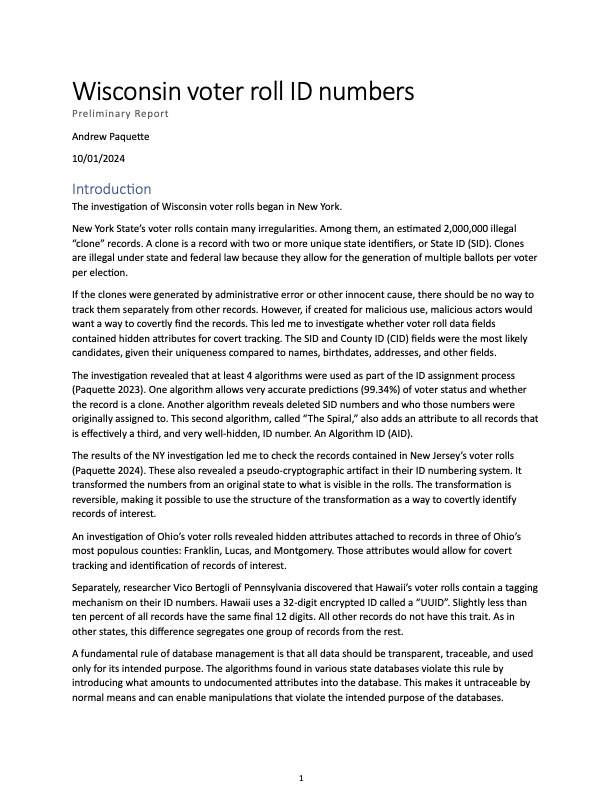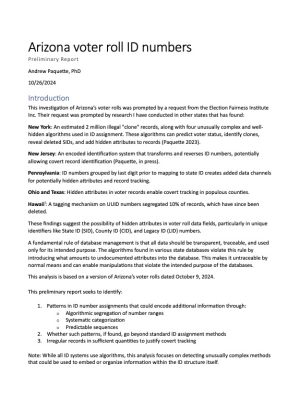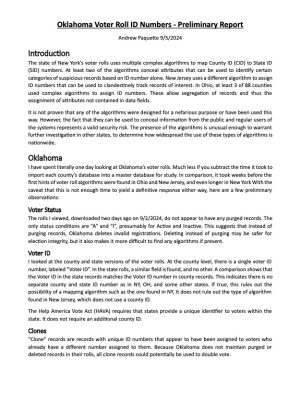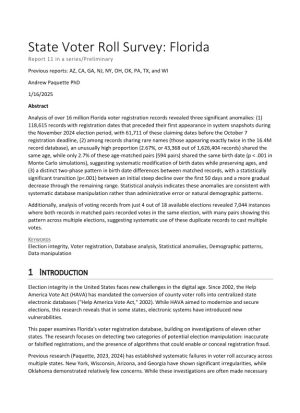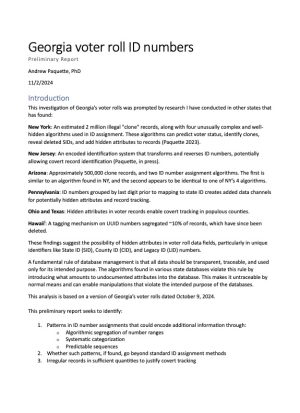Author: Andrew Paquette, PhD
This investigation examines the presence of hidden attributes in Wisconsin’s voter rolls, following discoveries of irregularities in New York, New Jersey, Ohio, and Hawaii. Previous research revealed that some state databases employ algorithms that introduce covert tracking mechanisms, enabling the identification and potential manipulation of voter records. These hidden attributes violate fundamental database management principles by embedding undocumented information into voter registration systems.
A preliminary review of Wisconsin’s voter rolls, prompted by a concerned citizen, sought to determine whether similar hidden attributes were present and if they were generated by deterministic algorithms unknown to state or county officials. The investigation identified 874,455 illegal cloned records in Wisconsin’s August 2024 database. Furthermore, multiple algorithms were detected in ID assignment processes, categorized as (1) normal sequential increments, (2) variable increments by multiples of ten, and (3) an obfuscation-based method designed to appear random.
These findings suggest that Wisconsin’s voter rolls, like those of other states, may be susceptible to covert tracking mechanisms, warranting further analysis to assess their implications for election integrity.
